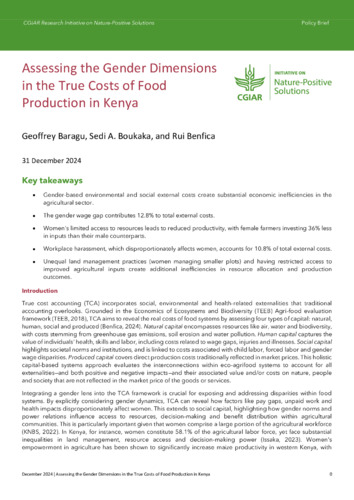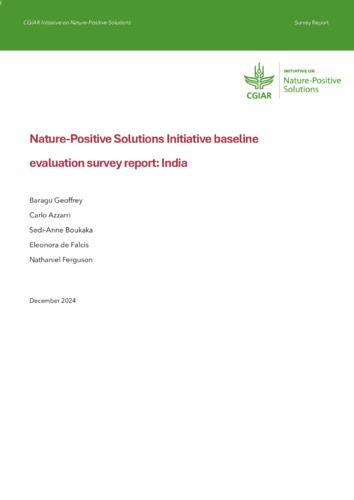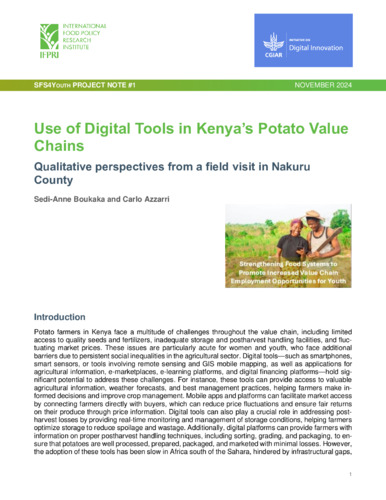Publications

Brief
Assessing the gender dimensions in the true costs of food production in Kenya

Report
Nature-Positive Solutions Initiative baseline evaluation survey report: India

Working Paper

Back
With research staff from more than 60 countries, and offices across the globe, IFPRI provides research-based policy solutions to sustainably reduce poverty and end hunger and malnutrition in developing countries.

researcher spotlight
Carlo Azzarri is a Senior Research Fellow in the Innovation Policy and Scaling Unit. His work focuses on the relationships among poverty, nutrition, food security, agriculture, the environment, production, and migration—analyzed at both micro and macroeconomic levels, primarily using quantitative methods.

Back
Since 1975, IFPRI’s research has been informing policies and development programs to improve food security, nutrition, and livelihoods around the world.

Back
IFPRI currently has more than 600 employees working in over 80 countries with a wide range of local, national, and international partners.

Sedi is a Research Coordinator in the Innovation Policy and Scaling Unit, based in Nairobi, Kenya. Prior to 2023, she worked as a consultant for IFPRI for two years and supervised data collection, data analysis, and preparation of impact assessment reports under the International Fund for Agricultural Development–funded program on assessing the gendered impact of rural development projects in four countries. She is a development economist with research experience in household welfare measurement and impact assessments of complex rural and agricultural development programs, with a focus on Africa. She is now coordinating several household surveys and working on the implementation of experiments under the CGIAR Research Initiatives Nature+ and Digital Innovation.
Sedi received a PhD in economics from the University of Rome Tor Vergata.

Brief

Report

Working Paper